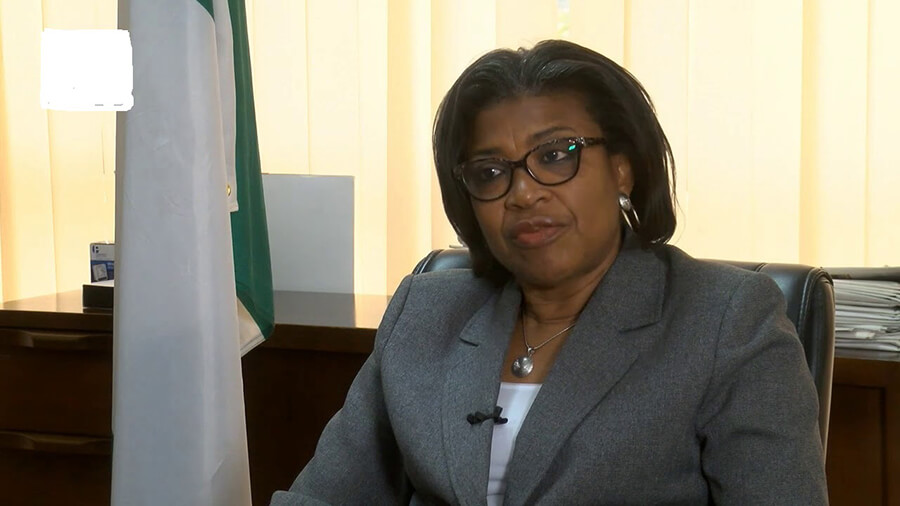Experts Warn As Buhari’s Administration Borrows N6.69trn In 2022, Pushes Nigeria’s Debt Burden To N46.25trn
…DMO Blames Rising Debt On Issuance Of Promissory Notes
Nigeria’s total public debt as at December 31, 2022, consisting of the Domestic and External Debt Stocks of the Federal Government of Nigeria and the 36 State Governments and the Federal Capital Territory rose to N46.25trn or $103.11bn.
Advertisement
The figure was released on Thursday by the Debt Management Office.
The DMO said the comparative figure for December 31, 2021, is N39.56trn or $95.77bn.
This means that the administration of President Muhammadu Buhari borrowed a whopping sum of N6.69trn in the 2022 fiscal period alone.
In terms of composition, total domestic debt stock was N27.55trn ($61.42bn) while Total External Debt Stock was N18.70trn ($41.69bn). Among the reasons for the increase in the total public debt stock were new borrowings by the FGN and sub-national governments, primarily to fund budget deficits and execute projects.
Advertisement
The DMO stated that the issuance of Promissory Notes by the FGN to settle some liabilities also contributed to the growth in the debt stock.
It said, “On-going efforts by the Government to increase revenues from oil and non-oil sources through initiatives such as the Finance Acts and the Strategic Revenue Mobilization initiative are expected to support debt sustainability.”
Meanwhile. the total public debt to Gross Domestic Product ratio for December 31, 2022, was 23.20 per cent and indicates a slight increase from the figure for December 31, 2022, at 22.47 per cent
The ratio of 23.20 per cent, the DMO stated is within the 40 per cent limit self-imposed by Nigeria, the 55 per cent limit recommended by the World Bank/international Monetary Fund, and, the 70 per cent limit recommended by the Economic Community of West African States.
The Debt Management Office and the Minister of Finance had come under series of attacks from experts and key stakeholders in the economy on the country’s rising debt levels.
Advertisement
Nigeria’s debt service to Gross Domestic Product ratio had hit 73 per cent based on figures released by the Finance Ministry in October last year.
Speaking on the country’s debt burden, the Chairman, Chartered Institute of Bankers of Nigeria, Abuja Chapter, Prof Uche Uwaleke said the huge amount spent on debt servicing could pose great danger for the economy.
He said, “We are spending so much from our revenue to service debt and when that happens what is the implication? You have very little for what you want to do. If you have N1 expenditure, what it means is that you have 20 kobo for it. So, it counts out development of capital projects because that leaves you with very little and debt servicing you must do.
“That is why every year, government has not defaulted. Government will always service debt, so it leaves us with very little and that is why you see us more like in a perpetual state of borrowing.
“You will need to borrow to survive because as you earn, you are using it to service debt and so you will end up even refinancing. Refinancing means you borrow to service your debt. So that is our situation and I will say, the debt service to revenue ratio is really a problem and that is why sometimes you hear the Ministry of Finance say that we have a revenue challenge.”
He suggested that since the government is not earning enough revenue, time has come for it to adopt a cost reduction strategy to bring down the cost of governance.
Advertisement
He added, “We are not earning enough, because if we are earning enough, the amount we are spending on debt service would not be an issue but because the revenue is not as big as it should, the little we are earning we spend on debt servicing. So it is a challenge.
“If you add the debt that the government is owing Central Bank, that tells you too that we have a higher figure. So, the debt stock is quite high, there is no doubt about that.
“My worry about the debt stock really is if you look at the composition, now going to what we should do, I think we should focus more on concessional loans. Loans form multilateral sources, World Bank, The International Monetary Fund, African Development Bank and maybe bilateral sources.
“When we are going for loans, we should focus on concessional rather than commercial debts.”
The Registrar Chartered Institute of Finance and Control of Nigeria, Mr Godwin Eohoi, said that with the Federal Government spending over 20 per cent of its budget size servicing the country’s debt, any further plan to increase the country’s debt profile may result into debt crisis.
He called on the government to discontinue borrowing in order to avoid the current situation where a huge chunk of the country’s annual budget is spent on debt servicing.
“Currently, what we are still doing is debt servicing using a huge proportion of the annual budget to pay debt. That is serious because the money that you would have used for other things is now being used to pay debt.
“The debt is still mounting and the servicing that we are doing is quite huge. We are using over 20 per cent of our budget to service debt.
“We should not even accumulate further debt beyond what we currently owe.”



